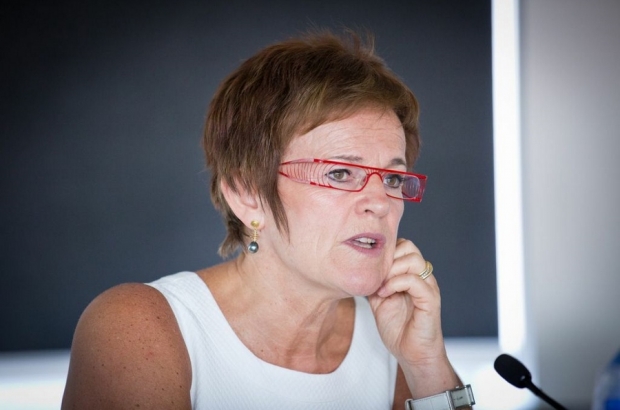- Daily & Weekly newsletters
- Buy & download The Bulletin
- Comment on our articles
VUB scientist develops alternative to animal testing
Vera Rogiers and her research team at the Free University of Brussels (VUB) are developing a technique that will make it possible to test new drugs for their potential negative effects on the liver without resorting to the use of test animals. Rogiers recently received €30,000 in funding from the Brussels state secretary for animal welfare, Bianca Debaets, to further her research.
What alternative method are you developing exactly?
We reprogramme human skin stem cells into liver cells, which can be used to test the potential side effects of pharmaceutical substances. Certain drugs, like the pain killer paracetamol, have harmful effects on the liver when taken in excessive quantities. The safety of pharmaceutical substances is usually verified via tests on rodents and dogs, but we want to provide an alternative in vitro method for which no animals are needed and which additionally produces more relevant results for people.
Why can’t you use liver cells instead of converted skin cells?
Because there are not even enough donor livers for transplantations, let alone for research. We use cells from circumcised foreskins specifically because this type of skin is so thin that it is practical to work with.
When will your technique be ready for general use?
We estimate in about five years. We currently use culture plates in the lab but are working hard to develop a lab-on-a-chip – a kind of miniature laboratory. With these devices, created through 3D-nanoprinting, it will be possible to carry out the same tests with only a fraction of the cells needed now. This would make tests much cheaper and enable commercialisation since labs-on-a-chip can be mass-produced. We are working together with B-Phot, the VUB photonics team specialised in light technology.
How will you use the subsidy you received?
We hired a PhD student, but €30,000 is only enough to finance her research for one year, and a PhD normally requires four years. So I hope to get additional funding. Thankfully, we recently also received a donation from a citizen, Mireille Aerens, which allowed us to establish a VUB chair that I lead. We are trying to get more funding from the Belgian and European governments but are also increasingly examining opportunities to collaborate with companies.









